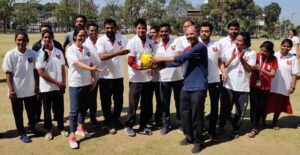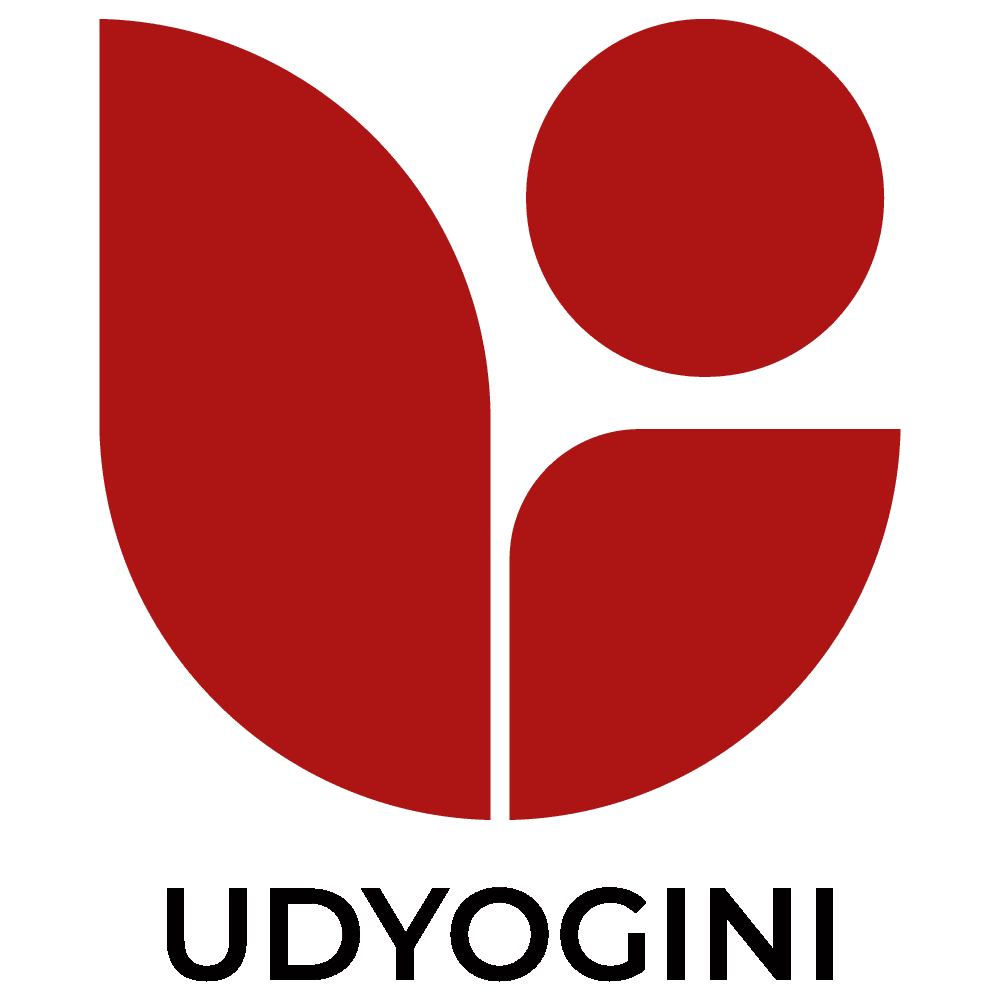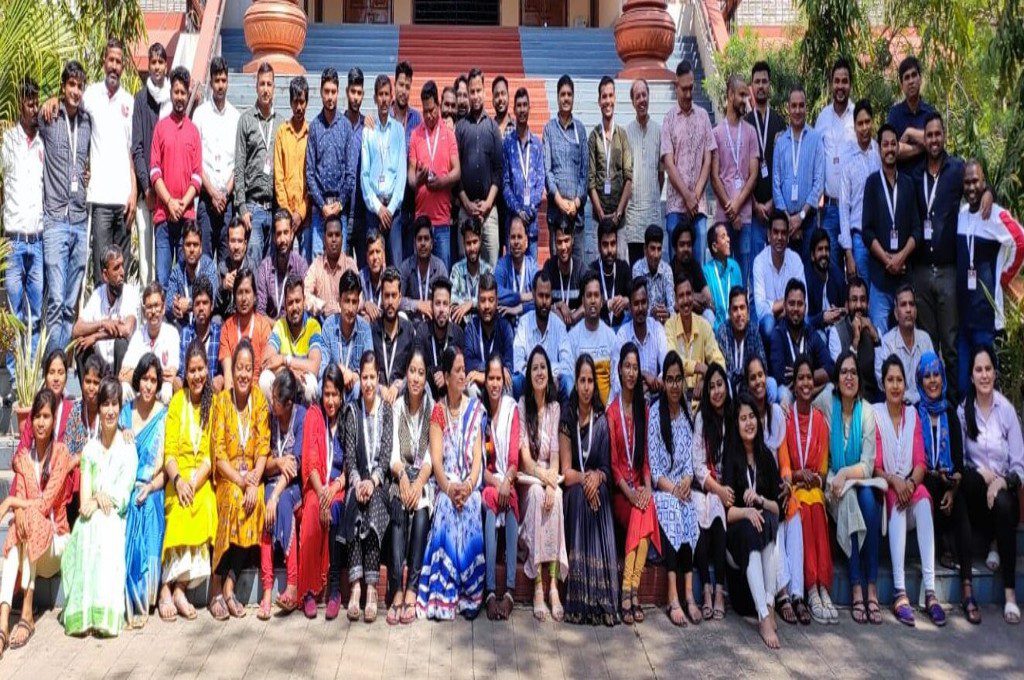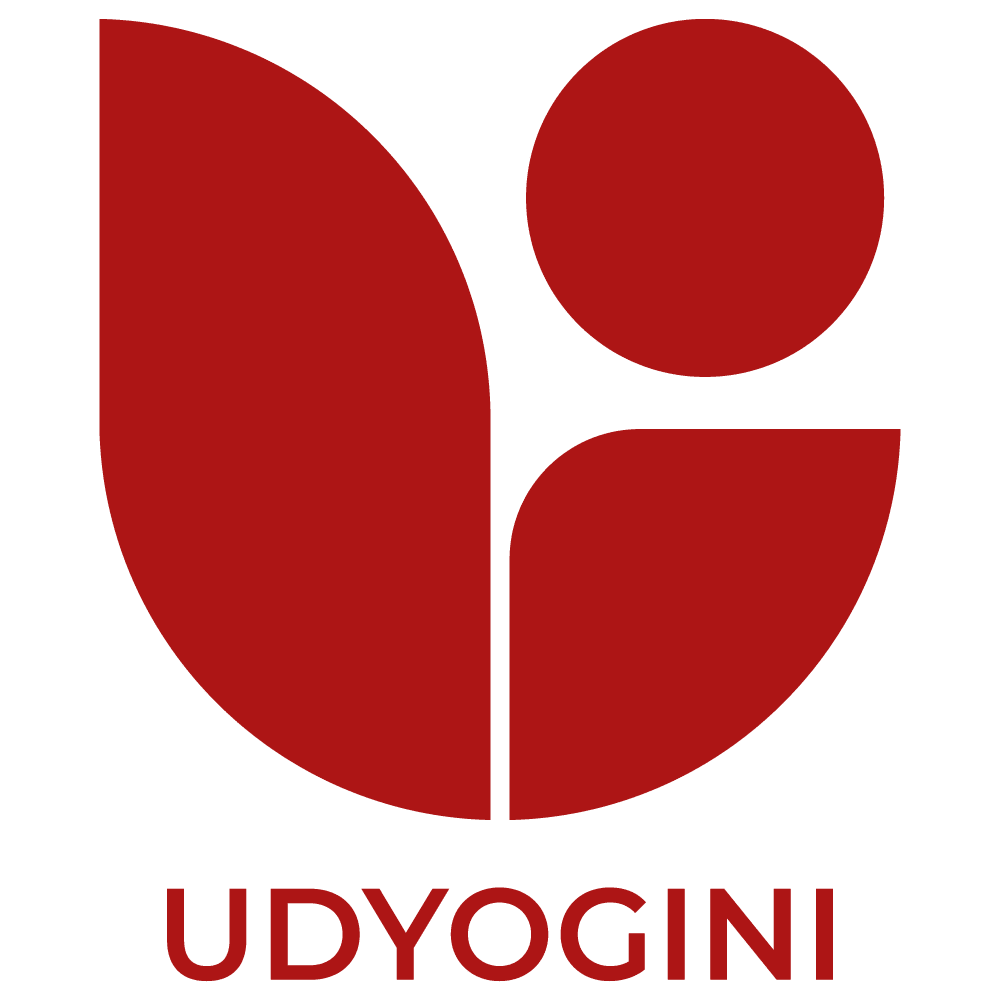After a two-year break due to the COVID-19 pandemic, Udyogini’s annual retreat was held in Raipur, Chhattisgarh, on February 21-26, 2022. All Udyogini employees attended it, including the CEO, Arvind Malik, and two external consultants, Rashmi Saxena and Ujjwal Ganguly.
The retreat’s main goal was to evaluate the work done in Udyogini over the previous year and plan for its immediate and mid-term future. Furthermore, the following broad objectives were identified: –
1. Vision 2050 and the 2030 Strategy
2. Model of Udyogini
3. Values to live by
4. Priorities for 2022-23
Vijay Sahu, Project Manager (Kanker), began the event with a heartwarming welcome speech followed by the lighting of the lamp, folk dance by the field assistants of (Kanker, Chhattisgarh), a small note on the objectives of the retreat by the CEO, Deepti Ameta – Head Organizational Development expressed her joy in seeing everyone together and State Programme Manager Shambu Kumar was talking about Udyogini’s presence in Chhattisgarh.
On the first day, Rashmi Saxena, the Program Coordinator, led an introductory activity to help all employees get to know and learn about each other’s expectations from the retreat. All participants shared their prospects, which were written down and given to the coordinator. The following were the top three most common expectations: –
Understand people from various states and verticals
Learn more about Udyogini’s vision and mission, as well as its history
Gain knowledge about the multiple programs currently running in different states and locations
The objective of the second day was to define the word समृद्ध महिला. Other questions along the same lines were added to this, such as which women in society are we calling empowered women, how they look, how many such women are in your respective villages, and why so many women are not empowered. The responses mostly revolved around statements like “If women start earning money, it will reduce the burden on men,” “Women should be financially independent so that they can make their own decisions, and they will also have control over Money,” “Income in hand- Confidence/trust in oneself- Respect in society.”
The day continued with the State Programme Managers (SPMs) – Raj Kumar Barman, Shambu Kumar, Vivek Jain, and Gopal Kumar Jhadhav, present the history, current work areas, and functionalities of all the other team members in their respective states.
To summarise the second day, a brief conversation was held to learn more about the functions of people working in the Delhi Office. Deepti Ameta, Head of Organization Development, took the lead and stated that Udyogini began with the mission based on the need and situation. And now, to grow in that alignment, Udyogini must evolve with time. This retreat has been organized to provide proper direction and guide people to follow and understand the approach. She spoke about the organization and its two parts, internal (Aantrik) and external (Aantrik). She has stated that retreat is a way to reduce the differences between various states and thrive on being in one direction and for the feeling of one Udyogini. Our work varies, as do our strategies across all states, but Udyogini has a single overarching goal. Towards the end, other Delhi team members spoke one line about their respective work areas.
The third day was dedicated to everyone in Udyogini getting to know each other better and forming bonds. What better way to do so than to engage in sports together? For a change, everyone was dressed in Udyogini’s band t-shirts, and there was a sense of unity amongst everyone that day. Various fun games were held throughout the day, but the highlight was a cricket match at the Raipur police ground that lasted nearly three hours without a break. Everyone was utterly engrossed in the cricket match, which resulted in a few brawls, but we saw that many new bonds had been formed at the end of the day. That night, we said our goodbyes to half of our colleagues who had to leave for their respective locations to avoid disrupting the work.

The next three days were crucial for the remaining employees because we all had to work together on the organizational goals. First, everyone shared their major takeaways and learnings from the previous three days, and we could tell that everyone was ecstatic to be a part of this retreat. In addition to discussing the history of Udyogini, Arvind Malik shared the following learnings:
• Most women are content with their jobs as producers or wage earners.
• Unless they are handheld by a market player, PG/companies are frequently not viable business entities.
• Trading in the raw community is a high-risk endeavor.
• It is a difficult battle for community-based FPOs to overcome external market competition.
• Investing in the raw community will not yield many returns.
• FPO/PCs are frequently unable to compete with a strong trader’s community that banded together against producers, particularly regarding commodity procurement and determining fair prices.
Our special consultant Ujjwal Ganguly spoke about his experiences with Udyogini. The World Bank focused on women’s entrepreneurship at the time because it was a pressing need. The World Bank’s idea was to establish Udyogini, which would only work on women’s entrepreneurship. Udyogini used to work as a trainer for various organizations that worked on the ground to reach the most significant number of people. He also stated that Udyogini’s vision was to train women to work as businesswomen rather than just workers. To thrive with sustainability, they should be able to calculate BEPs, depreciation, other calculations, marketing, market research, and so on. Udyogini believed and still believes in women’s abilities and skills. The larger goal is that women can control their decisions and have money in hand.
Ujjawal spoke very strategically about the practice of seeing the demon in whatever we are aspiring for, women, beneficiaries, or communities. Using an example, he stated, “We want to increase the annual income of 1000 women by INR 50,000. Let’s see how big the issue is. We need to look at how many farmers, villages, and families are needed to achieve those two crores.” He emphasised that pitching it to a donor becomes much more accessible if the model is solid and viable. According to him, the following items are required before beginning any
business: –
• Pricing (focus should be on how to reduce it)
• The packaging (attractive, unique)
• Low sound volume (cross-subsidized)
• Branding
• Target Audience
• Product positioning
Following that, an engaging yet intellectual activity was held in which all-state teams were required to sit down separately and create a business plan for an enterprise based on their learning. The day ended before anyone could begin presenting their plan, and we all had to wait till the next day.
On the second last day of the retreat, the Rajasthan team presented their business plan for the Chili value chain. The other states then gave a detailed business plan for product-based value chains based on Ujjawal’s methodology. Without a doubt, all of the teams generated fantastic ideas that, if properly considered, could be implemented in real life. Ujjawal provided numerous pointers to remember during all of the presentations. The following are some of the suggestions he made: –
• Purposive dialoguing and triangulation in any business plan are very important.
• Volume and income should be attractive to women in FPO who can think of the business realistically and sustainably
• For marketing, it is to keep in mind that customers prefer similar quality/taste (standardized product)
• Market or product study is critical
• The main objective is the income enhancement of women. Then focus on production/collection strategy
• Partner with one company/ person; if they buy bulk volume but still sell it to them at a lower price. Sell the product if it doesn’t exceed the operational cost
• Finance/investment strategy
• Marketing/ packaging- size, label, shape, design
• Human resource/ marketing cost
• Risk analysis.
• Feasibility plan
Deepti Ameta and Rashmi asked everyone about their vision for Udyogini by 2030, talking about the hopes and dreams people have for Udyogini in the next ten years. A long list of goals and hopes for the future were compiled for the organisation. It was an honor to see everyone working together to put their hopes for Udyogini on paper. As a result of our efforts, we established goals for the organisation until 2050.
Deepti stated, “That it is beautiful that we all decided on which path or direction to take. We all agreed on what we want for Udyogini in the coming years. No one here can tell you exactly how to do things to reach that goal, but we should all try it out, and it’s great that we all know which way to go.” The retreat concluded with team members developing a code of conduct for the organization and sharing their significant takeaways from other team members.


